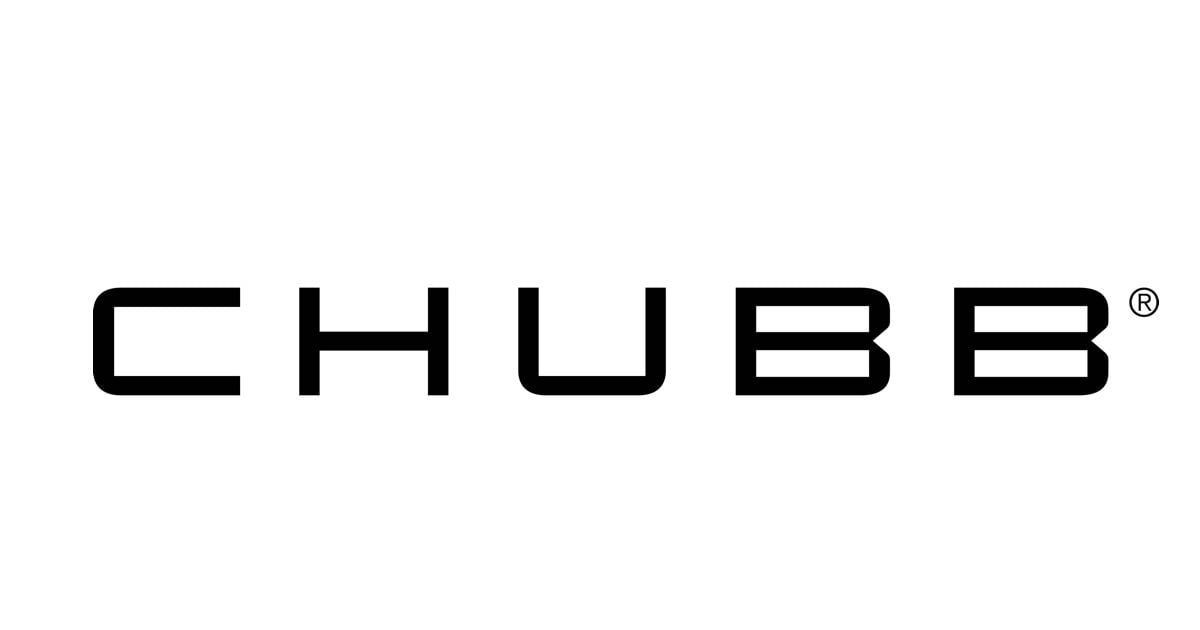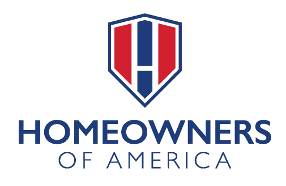Key takeaways
Chubb, USAA and Amica are among the best home insurers in South Carolina.
Cincinnati Insurance is the best cheap insurer in South Carolina, with a star rating of 4.7 and an average annual premium of $1,495.
Chubb, USAA and Amica are among the best home insurance companies in South Carolina, according to our analysis.
To help you find the best home insurance in South Carolina, we gathered and analyzed data from insurance companies across the state. These are the insurers that earned 4.5 stars or more.
Rates are based on a sample homeowner with no recent claims, $300,000 of dwelling coverage, $300,000 of liability coverage and a $1,000 deductible.
Company | NerdWallet star rating | Average annual rate |
|---|---|---|
Not available | ||
Not available | ||
$1,495 | ||
$2,350 | ||
$1,870 | ||
Not available | ||
USAA* | $1,715 | |
*USAA membership is open only to active military, veterans, some federal employees and their families. | ||
Get home insurance quotes in minutes
Answer a few questions to see custom quotes and find the right policy for you.The best homeowners insurance companies in South Carolina
Below are more details about the best homeowners insurance companies in South Carolina.
Note: Some insurance companies included in this article may have made changes in their underwriting practices and no longer issue new policies in your state.

Chubb
- Far fewer consumer complaints than expected for a company of its size.
- Standard coverage includes features that many companies offer only as extras.
- Perks to help you protect your home.
- Most consumers can't get a quote online and will instead need to contact a local agent.
Chubb caters to affluent homeowners, offering coverage other insurers often charge extra for. For example, the company’s policies include extended replacement cost coverage for the structure of your home. This is useful in case it costs more than your dwelling limit to rebuild after a disaster. Chubb’s standard policies also cover water damage from backed-up sewers and drains.
Chubb policyholders in South Carolina are eligible for free Wildfire Defense Services. These services include personalized recommendations for protecting your home and firefighters sent to your home if a wildfire is near.
» READ MORE: Chubb homeowners insurance review

Amica
- High customer satisfaction ratings and low consumer complaints.
- Platinum Choice package offers extra coverage.
- Dividend policies can return a portion of your premiums.
- You can start a quote online but may have to finish the buying process by phone.
Amica shines when it comes to customer service. It draws a very low rate of complaints compared to other insurers, according to the National Association of Insurance Commissioners. Amica also earned high marks in two recent J.D. Power surveys about home insurance and customer satisfaction.
The company stands out for its broad range of coverage options. For example, you can customize your policy with extra coverage above your dwelling limit. This could be useful in case your house costs more to rebuild than expected. You may also want to add coverage for identity theft or damage from backed-up drains.
» READ MORE: Amica homeowners insurance review

Cincinnati Insurance
- Various coverage options.
- Far fewer complaints than expected for a company of its size.
- Coverage available for higher-value homes.
- No online quotes.
- Very little information on website.
If you want to do business with companies that value sustainability, consider Cincinnati Insurance. In recent years, the insurer has reduced fossil fuel emissions from both its facilities and company vehicles. When you buy Cincinnati home insurance, you may be able to add a “green upgrade” endorsement. With this coverage, you can use eco-friendly materials to repair or rebuild your home after a claim.
The company offers a variety of other options, including comprehensive coverage for high-value homes. You may be able to add coverage for things like identity theft, personal cyber attacks or certain types of water damage.
» READ MORE: Cincinnati homeowners insurance review
State Farm
- User-friendly website.
- Agents offer personalized service.
- Policies generally include extra coverage for your home’s structure.
- Below average for claim satisfaction in a recent J.D. Power study.
As America’s largest home insurer, State Farm stands out for its long list of coverage options. Its policies generally include extra dwelling coverage in case it costs more than expected to rebuild your home.
You may be able to add coverage for things like identity theft and water damage from backed-up drains. Another option may be to add an inflation guard rider to your policy. This automatically increases your policy limits to keep up with rising costs.
State Farm offers a free Ting smart plug to home insurance policyholders as a perk. This device monitors your home’s electrical network to help prevent fires.
» READ MORE: State Farm homeowners insurance review
Allstate
- Lots of discounts to help you save.
- Home-sharing coverage available.
- Many ways to customize your coverage.
- Ranked below average for consumer satisfaction in recent J.D. Power studies.
Allstate offers lots of ways to customize your policy, including replacement cost coverage for your personal property and coverage for water damage caused by backed-up drains. Other options may include home-sharing coverage and reimbursement for replacing damaged items with energy-efficient versions.
You may also be able to upgrade your policy with the Enhanced Package. One benefit of this package is Deductible Rewards, which takes $100 off your deductible when you sign up, plus an additional $100 off for each year you go without filing a claim. If you do file a claim, your rates won’t go up.
» READ MORE: Allstate homeowners insurance review

Openly
- Policies typically include guaranteed replacement cost coverage for your home's structure.
- Broad coverage for personal belongings.
- No restricted dog breeds.
- No online quotes.
Openly’s default homeowners policy goes significantly beyond those of many other insurers. Most notably, it offers guaranteed replacement cost coverage for the structure of your home. That means if your house is destroyed by a covered disaster, Openly will pay whatever it takes to rebuild it the way it was before.
Unlike many other insurers, Openly doesn’t have dog breed restrictions that could affect your ability to get liability coverage. It may also be a good bet for homeowners with collections of jewelry or other valuables, with up to $100,000 of blanket coverage available for these items.
» READ MORE: Openly homeowners insurance review

USAA
- Policies include standard coverage that often costs extra elsewhere.
- Fewer customer complaints to state regulators than expected for a company of its size.
- Perks for military homeowners.
- Available only to active military members, veterans, some federal employees and their families.
USAA sells homeowners insurance to active military members, veterans, some federal employees and their families. If that’s you, you may want to consider USAA.
The company offers some perks that are specific to members of the military, like deductible-free coverage for military uniforms and equipment. USAA will also waive your deductible if your personal property is damaged or lost due to war.
USAA homeowners insurance has certain features that many insurers charge extra for. For example, USAA covers your personal belongings on a replacement cost basis. That means you’ll get enough money to buy brand-new replacements for damaged items. Many companies pay only what your items are worth at the time of the claim.
» READ MORE: USAA homeowners insurance review
How much does homeowners insurance cost in South Carolina?
The average annual cost of home insurance in South Carolina is $2,350. That’s 11% more than the national average of $2,110.
In most U.S. states, including South Carolina, many insurers use your credit-based insurance score to help set rates. Your insurance score is similar but not identical to your traditional credit score.
In South Carolina, those with poor credit pay an average of $4,230 per year for homeowners insurance, according to NerdWallet’s rate analysis. That’s 80% more than those with good credit.
Average cost of homeowners insurance in South Carolina by city
How much you pay for home insurance in South Carolina depends on where you live. For example, the average cost of homeowners insurance in Charleston is $4,435 per year. Meanwhile, in Columbia, homeowners insurance costs about $2,055 per year, on average.
City | Average annual rate | Average monthly rate |
|---|---|---|
Aiken | $2,260 | $188 |
Anderson | $2,085 | $174 |
Beaufort | $3,530 | $294 |
Charleston | $4,435 | $370 |
Columbia | $2,055 | $171 |
Conway | $3,950 | $329 |
Easley | $1,960 | $163 |
Florence | $2,735 | $228 |
Fort Mill | $1,910 | $159 |
Goose Creek | $3,415 | $285 |
Greenville | $1,880 | $157 |
Greenwood | $1,970 | $164 |
Greer | $1,910 | $159 |
Lancaster | $2,180 | $182 |
Lexington | $2,110 | $176 |
Mount Pleasant | $4,315 | $360 |
Myrtle Beach | $5,315 | $443 |
North Augusta | $2,280 | $190 |
North Charleston | $3,790 | $316 |
Rock Hill | $1,890 | $158 |
Simpsonville | $1,940 | $162 |
Spartanburg | $1,910 | $159 |
Summerville | $3,175 | $265 |
Sumter | $2,395 | $200 |
West Columbia | $2,175 | $181 |
The cheapest home insurance in South Carolina
Here are the insurers we found with average annual rates below the South Carolina average of $2,350.
Company | NerdWallet star rating | Average annual rate |
|---|---|---|
$1,495 | ||
$1,870 | ||
Heritage | Not rated | $1,880 |
$2,055 | ||
$2,155 | ||
USAA* | $1,715 | |
*USAA membership is open only to active military, veterans, some federal employees and their families. | ||
Common risks for South Carolina homeowners
Here are a few problems you might encounter as a South Carolina homeowner, plus how to make sure your home is covered.
Hurricanes and tropical storms
The potent combination of wind and water from hurricanes and other storms can cause a lot of damage. Unfortunately, standard homeowners insurance policies may not cover all damage from hurricanes.
Most homeowners insurance policies pay for damage from wind but not flooding. However, a separate deductible may apply to wind or hurricane claims. (A deductible is the amount of a claim you’re responsible for.) For example, your policy may have a $1,000 deductible for most claims and a 1% deductible for wind or hail claims. So if your house has $250,000 worth of dwelling coverage, you’d have to pay for the first $2,500 of wind or hail damage yourself.
If your house is on the coast in a high-risk location, your insurer may not include wind coverage in your policy. You can buy wind coverage through private insurers or the South Carolina Wind Pool.
Flooding
Standard homeowners insurance generally won’t cover flood damage. If you’re at risk, consider buying separate flood insurance. (Your lender may even require you to do so if you live in a flood plain.)
To check your flood risk, start by looking up your address on the Federal Emergency Management Agency's flood maps. However, FEMA’s maps don’t always capture all types of flood risk. You may want to check another source, like First Street, a private company that models climate hazards. Enter your address at the top of the page to see your home’s flood risk rating on a scale of 1 to 10.
South Carolina insurance department
In South Carolina, the Department of Insurance oversees the insurance industry. Its website is the go-to resource for filing complaints against your insurance company. You can reach the agency by emailing consumers@doi.sc.gov or calling 800-768-3467.
How we rate homeowners insurance
NerdWallet’s star ratings reward companies for consumer-first features and practices. We evaluate factors such as consumer experience, coverage, discounts and financial strength.
In our research, we analyzed:
More than 270 million homeowners insurance rates.
More than 100 insurance companies.
Nearly 200 homeowner profiles.
View our complete homeowners insurance rating methodology.
Amanda Shapland contributed to this story.
Frequently asked questions
Home insurance isn't required by law in South Carolina, but your mortgage lender usually requires you to buy homeowners insurance. For more information, read Is Homeowners Insurance Required?
Here are three ways to save money on homeowners insurance in South Carolina:
Shop around to make sure you’re getting the best rate.
Choose a higher deductible. In case of any claims, you’ll pay more out of pocket, but your annual rates will be lower.
Bundle your home and auto insurance for an overall lower rate.
Some insurers will provide home insurance discounts if you invest in safety upgrades, such as storm shutters to prevent wind damage. Reach out to your insurer to ask if such discounts are available.
Most South Carolina homeowners insurance policies cover damage from wind but not flooding. That means you’ll likely need a separate flood insurance policy or add-on to cover hurricane damage. If you live on the coast, your homeowners policy may not cover wind either. Check with your agent or insurance company to see whether you need additional coverage.
Star rating methodology
NerdWallet’s homeowners insurance ratings reward companies for customer-first features and practices. Ratings are based on weighted averages of scores in several categories, including financial strength, consumer complaints, coverage, discounts, claims process and website functionality. These ratings are a guide, but we encourage you to shop around and compare several insurance quotes to find the best rate for you. NerdWallet does not receive compensation for any reviews or star ratings.
Here’s how we weighted each category to come up with our list of the best home insurance companies:
Consumer experience (40%).
Financial strength (30%).
Coverage (25%).
Discounts (5%).
Read our full home insurance ratings methodology for more details.
Homeowners insurance rates methodology
NerdWallet calculated median rates for 40-year-old homeowners from various insurance companies in the 25 largest cities in each U.S. state by population. All rates are rounded to the nearest $5.
Sample homeowners were nonsmokers with good credit living in a single-family, two-story home built in 1984. They had a $1,000 deductible and the following coverage limits:
$300,000 in dwelling coverage.
$30,000 in other structures coverage.
$150,000 in personal property coverage.
$60,000 in loss of use coverage.
$300,000 in liability coverage.
$1,000 in medical payments coverage.
We made minor changes to the sample policy in cases where rates for the above coverage limits or deductibles weren’t available.
In states where credit is a rating factor, we changed the credit tier from “good” to “poor,” as reported to the insurer, to see rates for homeowners with poor credit.
These are sample rates generated through Quadrant Information Services. Your own rates will be different.
Complaint methodology
NerdWallet examined complaints received by state insurance regulators and reported to the National Association of Insurance Commissioners in 2022-2024. To assess how insurers compare with one another, the NAIC calculates a complaint index each year for each subsidiary, measuring its share of total complaints relative to its size, or share of total premiums in the industry. To evaluate a company’s complaint history, NerdWallet calculated a similar index for each insurer, weighted by market shares of each subsidiary, over the three-year period.
NerdWallet conducts its data analysis and reaches conclusions independently and without the endorsement of the NAIC. Ratios are determined separately for auto, home (including renters and condo) and life insurance.



